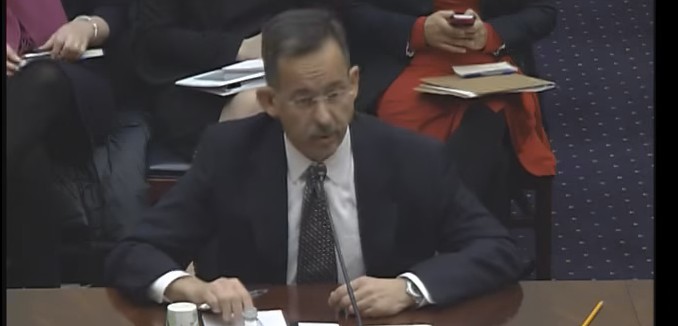Ambassador Stephen Mull, the White House official charged with overseeing the nuclear deal with Iran, admitted to Congress Thursday that the United States doesn’t know the exact location of the enriched uranium Iran was supposed to ship to Russia.
Mull was pressed on that point by Rep. Chris Smith (R – N.J.) at a House Foreign Affairs Committee hearing. In the exchange, which is embedded below, Smith questioned Mull about the location of the uranium that Iran agreed to dispose of in exchange for having sanctions lifted. “It’s on a Russian ship, in Russian custody, under Russian control,” Mull replied. When pressed further, Mull allowed that he wasn’t sure that the uranium had arrived yet, but that it would arrive in Russia soon.
Mull explained that the International Atomic Energy Agency (IAEA) had supervised the loading of the uranium onto a Russian ship and when it arrived it would be under Russia’s purview. He deflected questions about trusting Russian compliance, saying that “if one piece of dust” of the nuclear material would return to Iran, “we’re going to be aware of it.” But at the end of the exchange, Mull suggested than only Russia would have ultimate knowledge of the uranium’s final disposition.
“Not only was it questionable in the first place for Russia–a close ally of Iran–to be the repository for that nuclear material, but apparently there is no requirement under the agreement the Administration negotiated for the Russians to notify the International Atomic Energy Agency or any of the negotiating nations about where the nuclear material is, where it will be stored or under what conditions it will be safeguarded,” Smith said in a statement.
Sen. Chris Coons (D – Del.) said Wednesday that the White House was not adequately funding the IAEA to allow it to increase inspections of Iran’s nuclear facilities.
Director of Central Intelligence James Clapper acknowledged in a Senate hearing earlier this week that “Iran does not face any insurmountable technical barriers to producing a nuclear weapon,” contradicting administration claims that the nuclear deal cut off all pathways to Iran developing a nuclear bomb.




